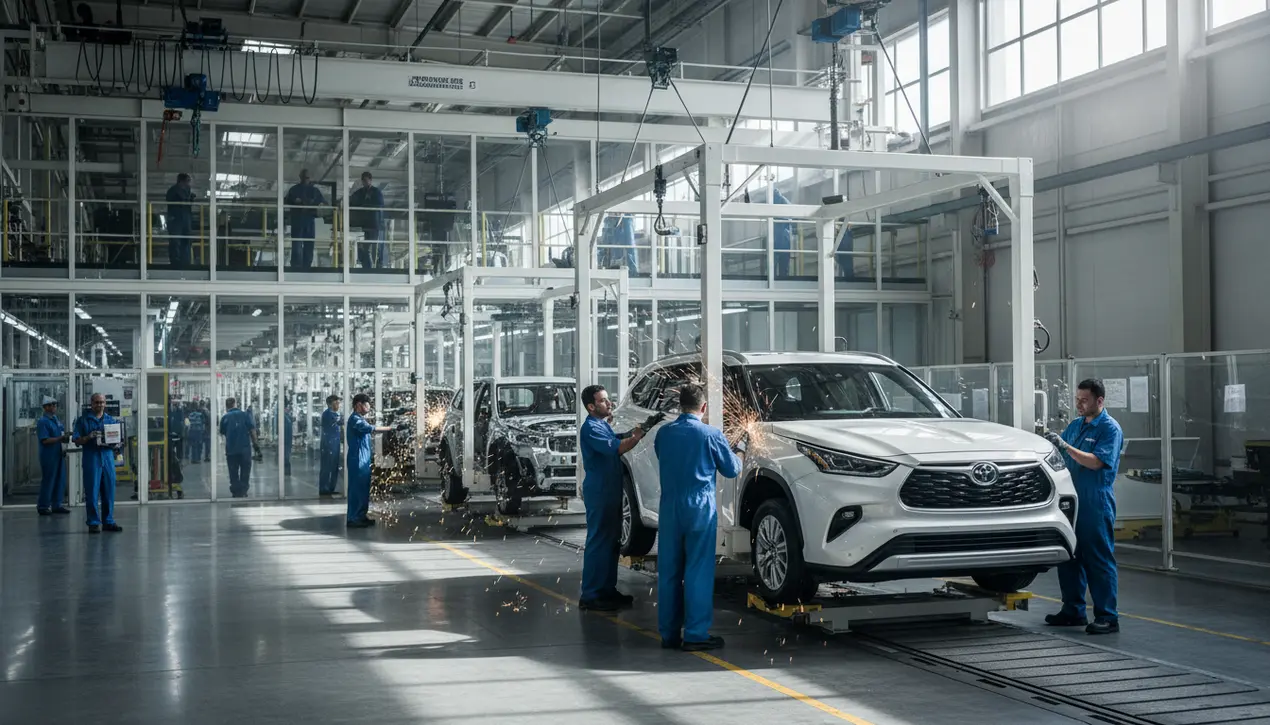
Otherauto & mobilityElectric Vehicles
Toyota invests $10 billion in US hybrid vehicle production.
ET
Ethan Brown
2 hours ago7 min read
Toyota’s announcement of a staggering $10 billion investment into U. S.hybrid vehicle production isn't just another corporate press release; it's a masterclass in strategic financial positioning, the kind of long-term play that would make Warren Buffett nod in approval. This isn't merely about building more cars; it's a massive bet on the messy, transitional reality of the American auto market, a five-year plan that reads like a chapter straight out of 'Rich Dad Poor Dad'—investing in assets that produce value while the rest of the world argues about the future.Let's break down what this really means. While the EV evangelists have been preaching an all-electric tomorrow, Toyota has been quietly doubling down on the practical, profitable present: hybrids.This $10 billion isn't just capital expenditure; it's a hedge against the volatile adoption curves of pure EVs, the lingering infrastructure gaps in charging networks, and the very real consumer anxiety over range and cost. For the everyday American, this translates into job security in states like Kentucky, Texas, and Indiana where Toyota’s plants are hubs of economic activity, and it means more options at the dealership that don't force a binary choice between gasoline and going fully electric.Think of it as a financial side hustle for the entire company—a way to generate substantial revenue from a proven, popular technology while funding the R&D for the solid-state batteries and hydrogen powertrains that might define the next decade. From a personal finance perspective, it’s a lesson in not putting all your eggs in one basket.The auto industry is littered with the carcasses of companies that bet everything on a single, hyped technology. Toyota, by contrast, is building a diversified portfolio of powertrains.This investment shores up their core business, ensuring a steady cash flow that can fund future gambles. It’s a pragmatic, almost contrarian move at a time when hype dominates headlines.The broader context here is a global automotive arms race, with the U. S.pushing for supply chain sovereignty through legislation like the Inflation Reduction Act, which heavily incentivizes domestic production. Toyota’s move is a direct response to that, a savvy play to secure federal tax credits and position itself as a domestic manufacturing powerhouse, not just an importer.The consequences are multifaceted: it puts pressure on Detroit's Big Three to match this level of commitment, it reassures a supply chain still reeling from pandemic-era disruptions, and it signals to the market that the road to electrification will be a hybrid highway for far longer than many tech optimists predicted. This isn't a retreat from innovation; it's a disciplined, capital-efficient march through the messy middle, a $10 billion testament to the power of playing the long game.
#Toyota
#hybrid vehicles
#US investment
#automotive industry
#manufacturing
#featured
Stay Informed. Act Smarter.
Get weekly highlights, major headlines, and expert insights — then put your knowledge to work in our live prediction markets.
Comments
Loading comments...
© 2025 Outpoll Service LTD. All rights reserved.